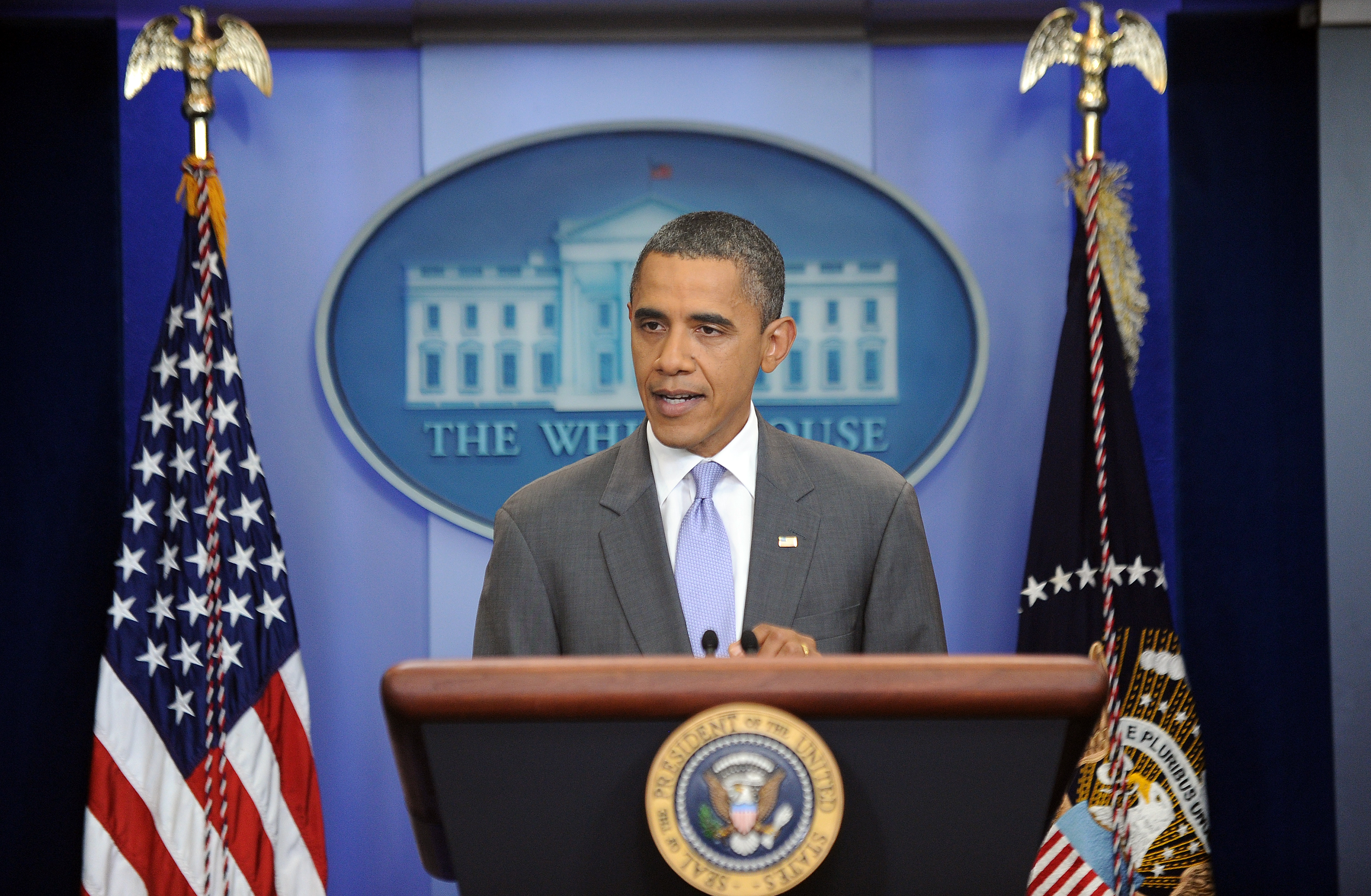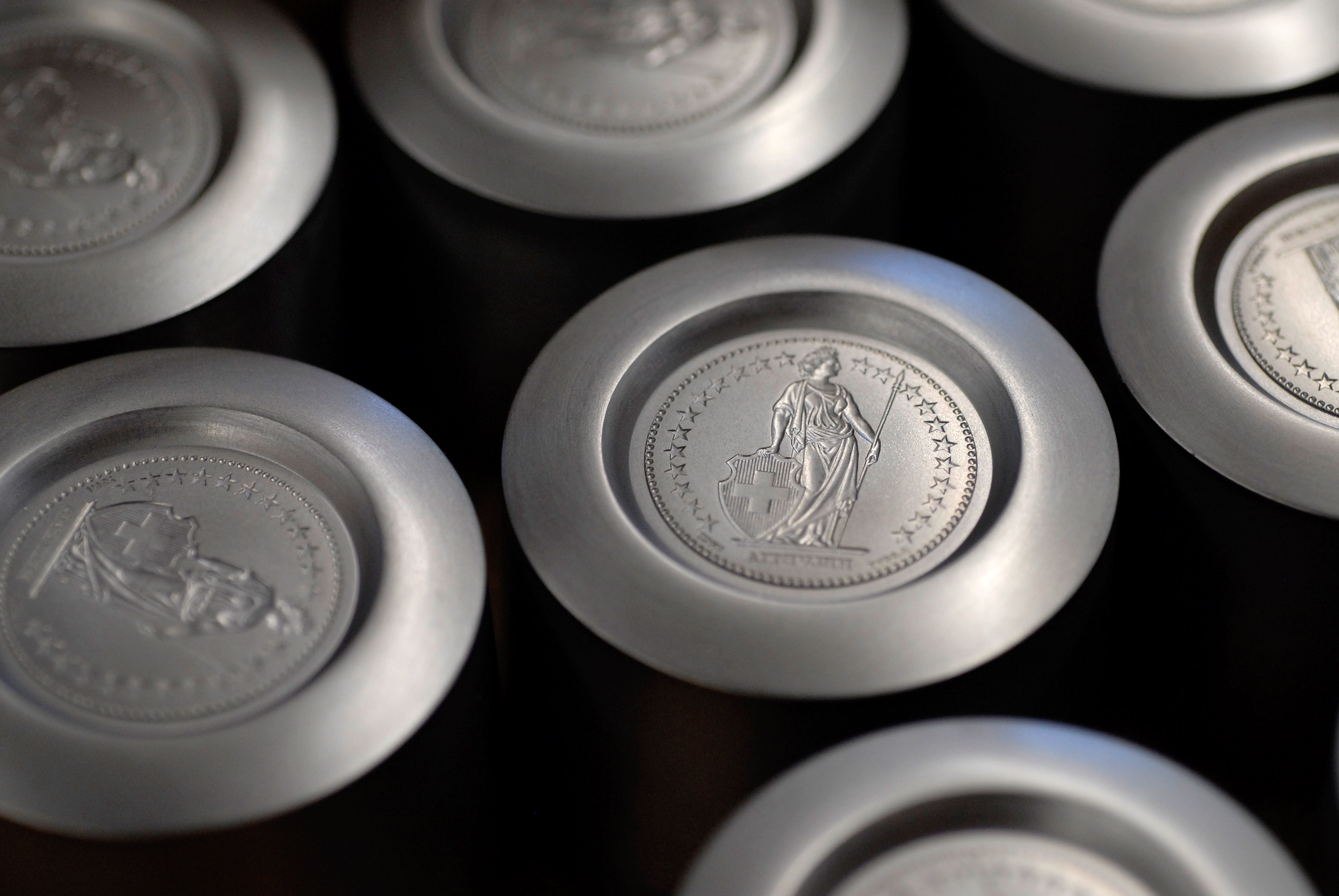US debt deal fails to convince Swiss press

A last-minute deal by the United States parliament to avoid a federal debt default has left the major Swiss newspapers decidedly unimpressed.
Some commentators warn that the compromise agreement struck on Monday in the US House of Representatives – endorsed by the Senate and President Obama on Tuesday – does not bode well for Switzerland and its strong franc.
The Tages-Anzeiger and Der Bund in their syndicated editorial are concerned that the deal would not be able to stop the US economy from falling into recession – and taking its trading partners with it.
“Switzerland’s export industry is not only faced with a slowing global economy. The situation is made worse as the room for manoeuvre is further limited because of the problem of the strong currency,” Tuesday’s editorial says.
In line with other Swiss papers, the editorial’s writer sees “no reason to feel relieved” as the deal – which came after months of bitter wrangling between the Democrats and the Republicans – reduces President Barack Obama’s ability to intervene on the labour market and to stimulate growth.
The deal raises the debt limit by up to $2.4 trillion (SFr1.87 trillion) from $14.3 trillion, and makes savings of at least $2.1 trillion over the next ten years.
Debt brake
The prestigious Neue Zürcher Zeitung is not too hopeful either about the prospects for the US administration.
The NZZ says the deal has done little else other than paving the way for a structural debt. The US will inevitably face financial difficulties once interest rates, which are at a record low at the moment, begin to rise, it says.
“There seems to be no willingness to agree to structural spending cuts and to tax increases,” the paper notes.
Its commentator recommends a tried and tested Swiss method of balancing the budget by having a debt brake. Introduced in 2002, it requires federal spending to be linked to revenues in the budget process – and stipulates that any new spending or tax cuts must be accompanied by an increase in corresponding revenues or cuts.
“The US urgently needs a method which forces politicians and the government to balance the budget over a business cycle,” it says.
The Basler Zeitung for its part dismisses the compromise decision as not far-reaching enough to stimulate growth.
It says a deal – “not exactly a brilliant decision” – is built on hope rather than a realistic assessment, and is just producing losers, according to its editorial.
Pre-election
However, the Geneva-based Le Temps disagrees.
It has identified the Tea Party and the conservative wing of the Republicans as the real winners of the dispute.
“They set the terms of the debate, they gave it direction and they now call the shots,” the editorial says.
Le Temps says the agreement is an unprecedented defeat for President Obama, but it adds that at least it gives some breathing space.
Nevertheless the editorial’s writer does not deliver a kind verdict.
“We have not seen the end of the messy business. And the word ‘messy’ applies not only to the result of the deal but also to the foreseeable future.”
The 24 Heures and Tribune de Genève newspapers in their syndicated editorial focus on the role of Obama as a mediator in the conflict ahead of the 2012 presidential elections.
“The debt crisis allowed him to polish his new role as referee between the two sides. We will see soon whether he did the right thing and whether he has become the kind of president who deserves a second term.”
The main Italian-language paper in Switzerland, the Corriere del Ticino, says curbing the deficit and reducing spending is just one thing.
“What companies and families need is a framework of more certainty for investment and consumer spending.”
The House of Representatives passed by 269 votes to 161 a last-minute deal on Monday to avoid a US federal debt default.
On Tuesday, the Senate approved the deal 74 to 26 and President Obama signed the bill into law.
It raises the debt limit by up to $2.4 trillion (SFr1.87 trillion) from $14.3 trillion, and makes savings of at least $2.1 trillion in ten years.
Months of political stalemate have unsettled financial markets and endangered the government’s coveted triple-A credit status.
The official US unemployment rate is 9.2%.

In compliance with the JTI standards
More: SWI swissinfo.ch certified by the Journalism Trust Initiative














You can find an overview of ongoing debates with our journalists here . Please join us!
If you want to start a conversation about a topic raised in this article or want to report factual errors, email us at english@swissinfo.ch.